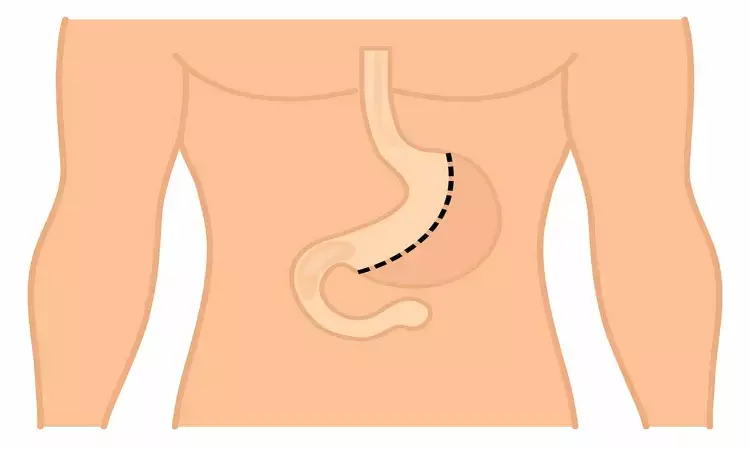- Home
- Medical news & Guidelines
- Anesthesiology
- Cardiology and CTVS
- Critical Care
- Dentistry
- Dermatology
- Diabetes and Endocrinology
- ENT
- Gastroenterology
- Medicine
- Nephrology
- Neurology
- Obstretics-Gynaecology
- Oncology
- Ophthalmology
- Orthopaedics
- Pediatrics-Neonatology
- Psychiatry
- Pulmonology
- Radiology
- Surgery
- Urology
- Laboratory Medicine
- Diet
- Nursing
- Paramedical
- Physiotherapy
- Health news
- Fact Check
- Bone Health Fact Check
- Brain Health Fact Check
- Cancer Related Fact Check
- Child Care Fact Check
- Dental and oral health fact check
- Diabetes and metabolic health fact check
- Diet and Nutrition Fact Check
- Eye and ENT Care Fact Check
- Fitness fact check
- Gut health fact check
- Heart health fact check
- Kidney health fact check
- Medical education fact check
- Men's health fact check
- Respiratory fact check
- Skin and hair care fact check
- Vaccine and Immunization fact check
- Women's health fact check
- AYUSH
- State News
- Andaman and Nicobar Islands
- Andhra Pradesh
- Arunachal Pradesh
- Assam
- Bihar
- Chandigarh
- Chattisgarh
- Dadra and Nagar Haveli
- Daman and Diu
- Delhi
- Goa
- Gujarat
- Haryana
- Himachal Pradesh
- Jammu & Kashmir
- Jharkhand
- Karnataka
- Kerala
- Ladakh
- Lakshadweep
- Madhya Pradesh
- Maharashtra
- Manipur
- Meghalaya
- Mizoram
- Nagaland
- Odisha
- Puducherry
- Punjab
- Rajasthan
- Sikkim
- Tamil Nadu
- Telangana
- Tripura
- Uttar Pradesh
- Uttrakhand
- West Bengal
- Medical Education
- Industry
Banded sleeve gastrectomy provides better weight loss than non-banded sleeve gastrectomy: Study

In a recent study, investigators have found that Banded sleeve gastrectomy provided better weight loss than non-banded sleeve gastrectomy 3 years after surgery, as published in the Journal of Annals of Surgery.
As a primary bariatric procedure, SG leads to excellent weight loss, yet weight regain is a relevant issue in mid- to long-term follow-up. Retrospective analyses suggest that banding a sleeve using a silicone ring may decrease weight regain and improve weight loss.
Laparoscopic sleeve gastrectomy (SG) is the most performed bariatric/metabolic operation. However, inadequate long-term weight loss remains a problem in some cases, possibly from gastric-sleeve dilation. Adding a reinforcing ring around the proximal gastric sleeve has been proposed, but relevant data are scant.
Therefore, Jodok M Fink and associates from the Department of General and Visceral Surgery, Medical Center-University of Freiburg, Faculty of Medicine, University of Freiburg, Germany conducted the present study to compare silicone-banded sleeve gastrectomy (BSG) to non-banded sleeve gastrectomy (SG) regarding weight loss, obesity-related comorbidities, and complications.
The authors conducted the banded versus nonbanded sleeve gastrectomy single center, randomized controlled trial on 94 patients, where they defined the primary endpoint as excess weight loss 3 years after surgery. However, secondary endpoints included the surgery's impact on obesity-related comorbidities, quality of life, and complications.
Among 94 patients randomized, 97% completed 3-year follow-up. Mean initial body mass index was 50.9 kg/m.
The authors observed the following results-
- Mean adjusted excess weight loss 3 years after SG amounted to 62.3% and 73.9% after BSG.
- Remission of type 2 diabetes occurred in 66.7% after SG and in 91.0% following BSG.
- Three years after surgery, ring implantation correlated with decreased frequency of symptomatic reflux episodes but increased frequency of regurgitation.
- The rate of major complications was not different between the study groups.
- Quality of life was better following BSG.
Hence, "BSG provided better weight loss than non-banded SG 3 years after surgery. Regurgitation was the main clinically relevant negative effect after BSG", they concluded.
Dr. Nandita Mohan is a practicing pediatric dentist with more than 5 years of clinical work experience. Along with this, she is equally interested in keeping herself up to date about the latest developments in the field of medicine and dentistry which is the driving force for her to be in association with Medical Dialogues. She also has her name attached with many publications; both national and international. She has pursued her BDS from Rajiv Gandhi University of Health Sciences, Bangalore and later went to enter her dream specialty (MDS) in the Department of Pedodontics and Preventive Dentistry from Pt. B.D. Sharma University of Health Sciences. Through all the years of experience, her core interest in learning something new has never stopped. She can be contacted at editorial@medicaldialogues.in. Contact no. 011-43720751
Dr Kamal Kant Kohli-MBBS, DTCD- a chest specialist with more than 30 years of practice and a flair for writing clinical articles, Dr Kamal Kant Kohli joined Medical Dialogues as a Chief Editor of Medical News. Besides writing articles, as an editor, he proofreads and verifies all the medical content published on Medical Dialogues including those coming from journals, studies,medical conferences,guidelines etc. Email: drkohli@medicaldialogues.in. Contact no. 011-43720751


